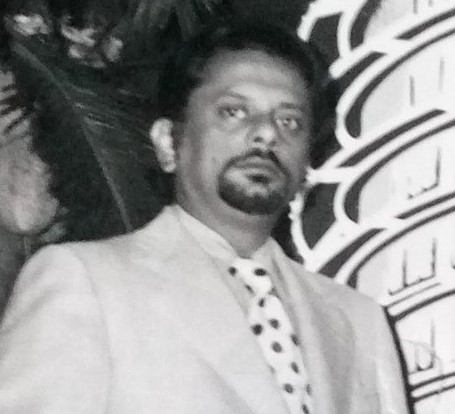Today it is not unusual for Indians to head multinational corporations as CEOs and MDs, in the US, Europe and other parts of the world. Yet, it was so in the distant past and the man who broke the glass ceiling was Vijaya Bhaskar Menon. He created history by becoming the first Indian and Asian to head a major Western record label.
Menon died recently at his Beverly Hills residence in California at the age of 86.
Working his way hard to become the CEO and president of Capitol Records, Los Angeles, since 1971, Menon achieved a major breakthrough for rock legends Pink Floyd, with their The Dark Side of the Moon, the 1973 seminal record. Working with a galaxy of artists at Capitol, he became the founding chairman of EMI Music Worldwide in 1978.
Praising him, the Universal Music Group Chairman and CEO Lucian Grainge said, “Determined to achieve excellence, Bhaskar Menon built EMI into a music powerhouse and one of our most iconic, global institutions. Music and the world have lost a special one.”
Menon was born on May 29, 1934 in Trivandrum (now Thiruvananthapuram) to K.R.K. Menon, Independent India’s first Finance Secretary in Pandit Jawaharlal Nehru’s Government. It was from his mother’s side, Saraswathi, he was exposed to Indian classical music, since she personally knew many of its leading exponents.
Impressing Joseph Lockwood
Having studied in the prestigious Doon School, Menon went on to do Economics from Delhi University’s St. Stephen’s College and later got his master’s degree from Christ Church College, Oxford. It was here in 1956, Joseph Lockwood, Electric and Musical Industries (EMI) chairperson, impressed by his brilliance, appointed him as an Executive Assistant.
Moving to Calcutta’s (now Kolkata) Gramophone Company of India, Menon quickly climbed the hierarchy becoming its Commercial Manager and then Chairperson, Managing Director and Chief Executive in 1964. The company under his stewardship dominated the Indian music market.
Move to Los Angeles
Keeping in mind his abilities and talent, Menon in mid-1971 was moved to Los Angeles to check the reasons for EMI’s Capitol Records loss of $18 million. Following the dismissal of two of its Presidents by Lockwood, Menon went on to assume the hot seat. Saddled with the uphill task of turning around the company, it is here Menon created history.
A team man, Menon’s motto was simply astounding! “Uncompromising excellence in what you do goes without saying. We expect more than that!” After marathon all-night meetings Menon turned around the Capitol. Besides, he cut down its artist roster, tightened budgets while pushing for aggressive promotion of the label’s artists. All this bore fruits! Within two years, the company marked a profit of $4 million.
That was not all, as greater fame awaited Menon.

George Harrison (Pic: Courtesy Wikimedia Commons)
Concert for Bangladesh album
On August 1, 1971, George Harrison along with Pandit Ravi Shankar, Ringo Starr, Bob Dylan Eric Clapton, Billy Preston, Leon Russell, Klaus Voormann and Badfinger organized the famous Concert for Bangladesh in support of the Bengalis fighting for liberation from West Pakistan. Three days after December 16, 1971, when the Indian Armed Forces liberated Bangladesh, Ravi Shankar and George Harrison’s The Concert For Bangladesh was released globally as a three-album box-set. Topping the charts, it won the Grammy for Album of the Year. Menon was the prominent person behind the worldwide promotion and success of “The Concert For Bangladesh” album. Launched within five months of the concert, it was acknowledged as terrific feat considering the large number of artists involved.

Pandit Ravi Shankar (Pic: Courtesy Wikimedia Commons)
Courting Pink Floyd
In 1972, Menon learned that the British quartet, Pink Floyd, which blamed Capitol for the poor sales of its earlier albums, were contemplating parting ways with the company. Flying to South France, where Pink Floyd was performing, Menon gave a fantastic display of persuasive skills! Following an all-night negotiating session, they agreed on a deal.
On March 1, 1973, Capitol released “The Dark Side of the Moon,” with a huge promotional campaign creating one of the biggest blockbusters in music history. A career-defining achievement for Menon, the album stayed on Billboard’s album chart for 741 consecutive weeks and has sold more than 15 million copies in the US alone, and more than 45 million worldwide.
Signing Queen!
Continuing his success streak, Menon in 1973, signed an unknown British group called Queen with a sensational lead singer Freddie Mercury. Next year, on hearing about the song “Rhinestone Cowboy” early in the morning, he saw to it that the Capitol’s decision-making team closed the deal with singer Glen Campbell at his Beverly Hills residence. That evening itself, the unforgettable song was recorded.
By 1975, Capitol’s recovery was complete.
Capitol signed some great albums with George Harrison, Glen Campbell, Helen Reddy, Linda Ronstadt, Natalie Cole, Paul McCartney, The Beach Boys and Tina Turner, plus its best-selling catalog comprised of The Beatles, Cliff Richard, Kenny Rogers, Neil Diamond and Olivia Newton‐John. Besides these, its recording stars included Blondie, Bob Seger, David Bowie, Diana Ross, Heart, and Sheena Easton.
Capitol ventured into classical music and went on to represent Maria Callas, Yehudi Menuhin and Herbert von Karajan.
With a 50 per cent interest in Britain’s Thames TV, Capitol produced the multi-Oscar winning Deer Hunter, Murder on the Orient Express and David Lean’s Passage to India.
In his prime, Menon was responsible for the production of almost 30 percent of the world’s recorded music and heading the multinational enterprise managed offices in 46 countries. The New Musical Express once termed Menon as the “Man who runs Rock & Roll”.




















